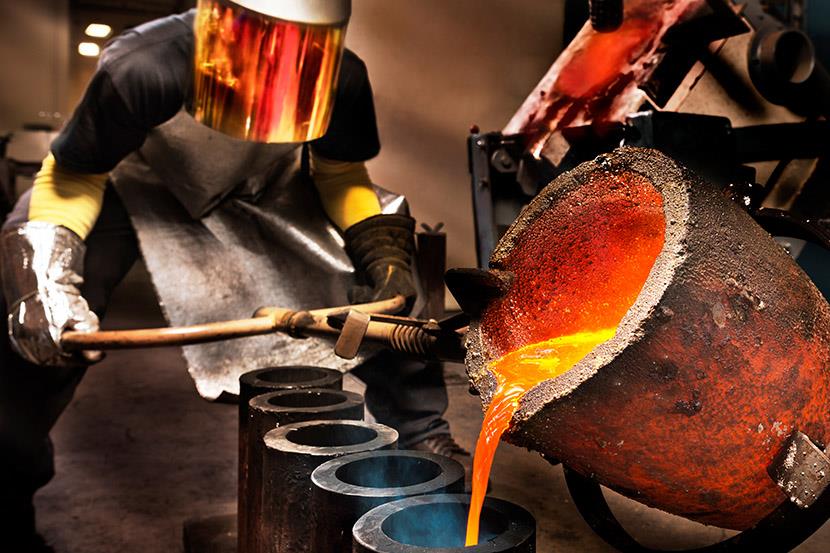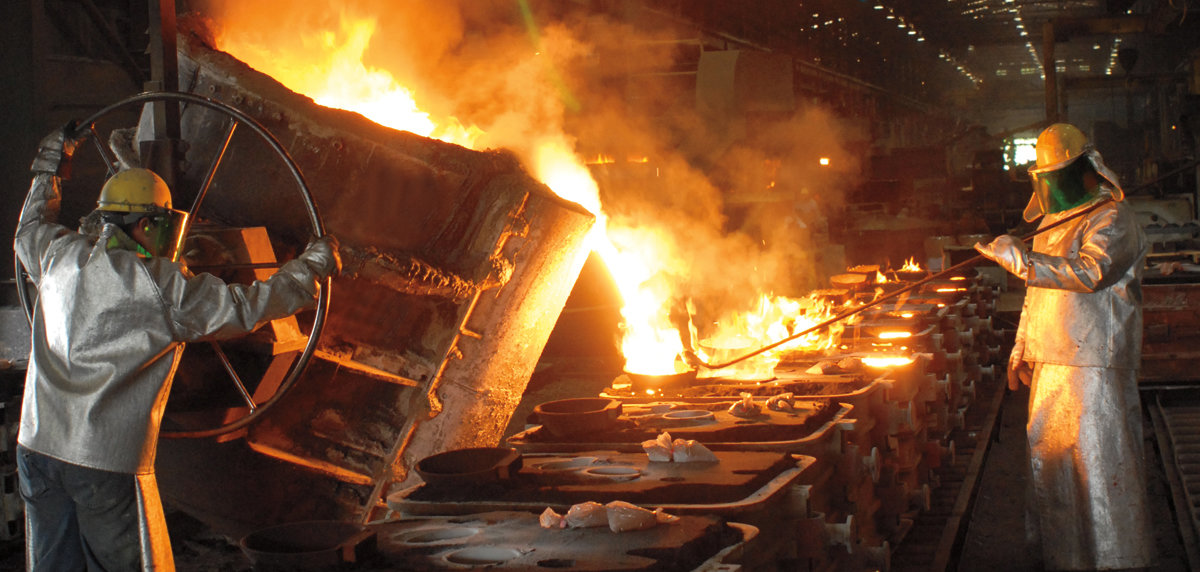Exploring the Role of a Metal Foundry in Modern Production Processes
Metal foundries are crucial in the landscape of modern-day production. They provide crucial parts throughout various sectors, adjusting to the needs of markets such as vehicle and aerospace. Advanced strategies such as 3D printing and automated casting have transformed their procedures. Additionally, sustainability has actually come to be a concern, influencing their techniques. As these foundries evolve, the ramifications for producing efficiency and innovation are substantial, raising questions regarding their future trajectory in an ever-changing economic situation.
The Development of Metal Casting Techniques

With the increase of mass manufacturing, foundries embraced approaches like die casting and lost foam casting, enhancing the manufacturing procedure and lowering waste. Each advancement in metal casting methods has actually accommodated the demands of numerous sectors, from automobile to aerospace. As metal casting continues to development, the interaction in between technique and innovation stays essential in meeting modern manufacturing difficulties, guaranteeing that foundries thrive and adjust in an ever-changing landscape.
Integration of Advanced Technologies in Foundries
Although typical metal casting methods have actually offered the industry well for centuries, the combination of innovative modern technologies in foundries is changing the manufacturing landscape. Automation and robotics enhance manufacturing processes, improving effectiveness and lowering the threat of human error. Technologies such as 3D printing enable rapid prototyping and the creation of complicated geometries that were once impossible with conventional methods. In addition, information analytics and the Net of Things (IoT) make it possible for real-time monitoring and anticipating upkeep, ultimately causing decreased downtime and increased productivity. These improvements also help with personalization, allowing makers to react rapidly to market demands. As sustainability comes to be a concern, the adoption of environmentally pleasant innovations, such as electrical melting heaters and progressed sand reclamation systems, better shows the sector's dedication to advancement. Jointly, these modern technologies not just boost functional efficiency however additionally position foundries at the forefront of modern-day production methods.
The Influence of Product Scientific Research on Foundry Operations
Product scientific research plays a crucial role in enhancing factory procedures, influencing both the choice of materials and the overall casting process. Developments in product science supply a much deeper understanding of the homes of steels and alloys, allowing foundries to pick one of the most ideal materials for specific applications. This expertise enhances the efficiency and toughness of cast products, which is necessary for satisfying industry standards.
In addition, advancements in product formulations and ingredients add to improved casting strategies, maximizing and reducing defects manufacturing performance. The development of innovative metal composites and clever materials permits foundries to produce lighter, more powerful elements, which are increasingly sought after in numerous industries such as automobile and aerospace.
In addition, product science help in the recycling of steels, making processes extra affordable and effective. By leveraging the current findings in product science, foundries can adapt to advancing market needs, ensuring their competition in a swiftly changing production landscape.
Sustainability Practices in Modern Metal Foundries
With the expanding emphasis on ecological responsibility, modern metal foundries are increasingly executing sustainability methods to minimize their eco-friendly impact (Metal Casting). One key technique involves the recycling of scrap metal, which not only minimizes waste but likewise preserves power check and basic materials. Foundries are embracing innovative melting technologies that improve power performance, consequently reducing greenhouse gas exhausts. In addition, making use of ecologically pleasant layers and materials has obtained grip, further decreasing dangerous exhausts throughout production
Water conservation techniques, such as closed-loop cooling systems, are being executed to lessen freshwater usage. Several foundries are additionally buying eco-friendly power resources, like solar More Info and wind, to power their procedures, thereby lowering reliance on nonrenewable fuel sources. Moreover, staff training programs focused on sustainability practices promote a culture of environmental awareness within the labor force. These campaigns jointly add to a much more sustainable future for metal foundries while meeting the needs of eco-conscious customers.
The Future of Foundries in an Altering Financial Landscape
As the international economic situation advances, foundries encounter a myriad of difficulties and opportunities that will form their future (Aluminum Foundry). The increasing demand for light-weight materials and advanced alloys requires advancement in production techniques and technical combination. Automation and smart production methods are becoming important for boosting effectiveness and decreasing functional prices. Furthermore, the increase of sustainability problems obliges foundries to take on greener procedures and reusing efforts, lining up with global ecological objectives
The financial landscape is likewise moving, with supply chain interruptions and varying raw product prices offering considerable difficulties. Foundries need to adapt by diversifying their supply sources and purchasing products science. Collaboration with industries such as sustainable power and electric automobiles can foster growth. Inevitably, the future of foundries will depend on their capability to utilize technological improvements while remaining responsive to market dynamics and ecological imperatives, Click This Link guaranteeing their importance in modern manufacturing.
Frequently Asked Concerns
What Kinds of Metals Are Typically Utilized in Foundries Today?
Commonly used steels in foundries today include aluminum, iron, steel, copper, and zinc. These materials are favored for their diverse buildings, enabling a variety of applications in sectors such as auto, aerospace, and building.
Just how Does a Factory Make Certain High Quality Control in Its Products?

What Safety Actions Are Carried Out in a Metal Foundry?
Metal foundries execute safety and security procedures including individual protective tools, air flow systems to reduce breathing of fumes, regular safety and security training for employees, emergency situation reaction methods, and extensive equipment upkeep to reduce threats and ensure a secure working setting.
The length of time Does the Metal Casting Process Commonly Take?
The metal casting process commonly takes a number of hours to days, relying on elements such as the intricacy of the mold, the kind of metal used, and cooling down times. Each task's demands substantially influence the period.
What Industries Primarily Count On Metal Foundries for Manufacturing?
Automotive, building and construction, equipment, and aerospace sectors largely count on metal foundries for manufacturing. These fields make use of cast steels for parts, making certain toughness and efficiency vital for their corresponding applications in manufacturing and assembly procedures.
Metal foundries are crucial in the landscape of modern manufacturing. Aluminum Casting. Conventional metal casting techniques have actually offered the market well for centuries, the combination of sophisticated technologies in foundries is revolutionizing the production landscape. Breakthroughs in product science provide a much deeper understanding of the buildings of steels and alloys, enabling foundries to pick the most appropriate materials for specific applications. With the expanding emphasis on environmental responsibility, modern metal foundries are progressively applying sustainability methods to minimize their eco-friendly footprint. Automotive, building and construction, aerospace, and equipment industries largely depend on metal foundries for manufacturing